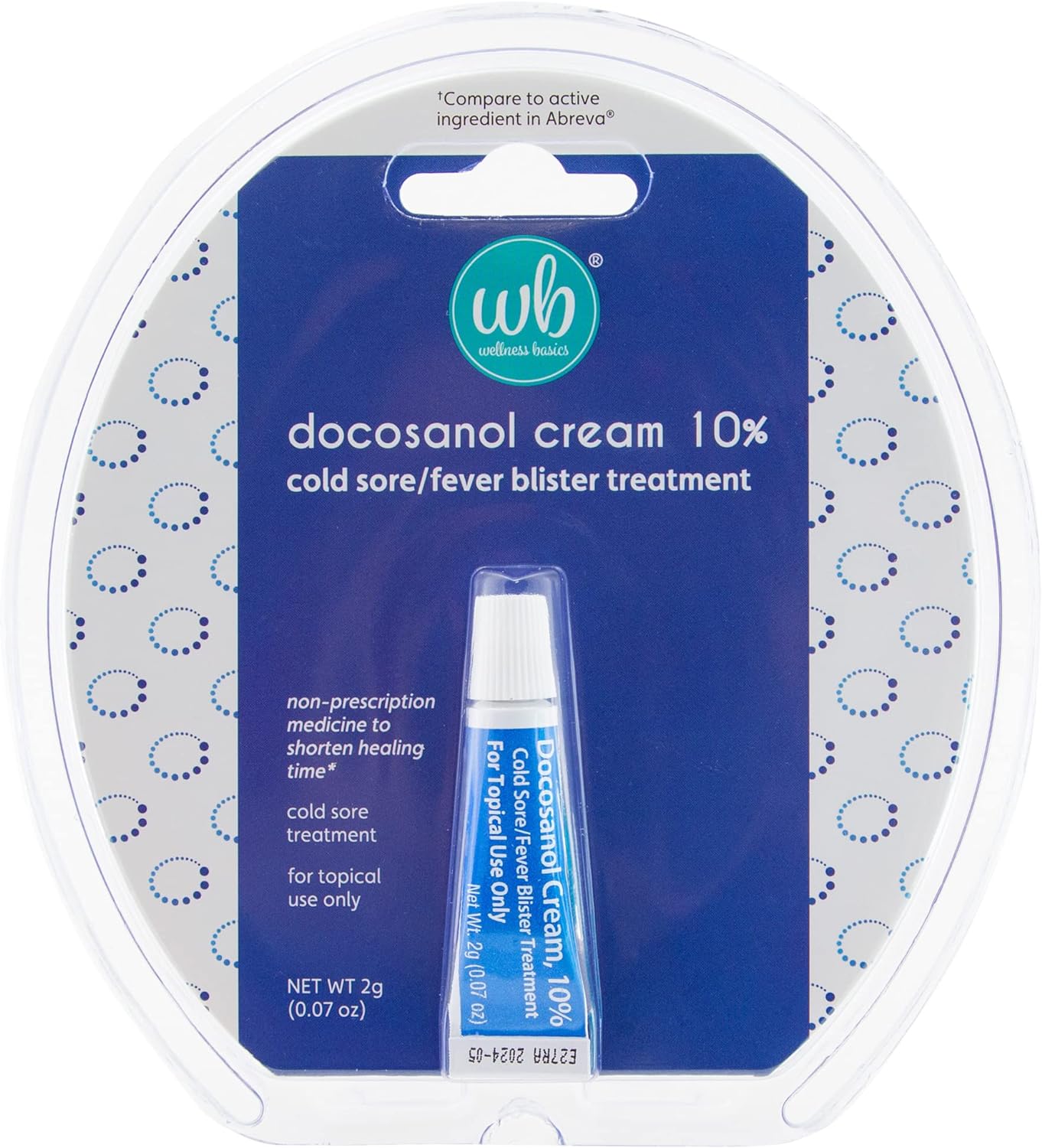





Price: $8.97
(as of Apr 10, 2025 16:01:02 UTC - Details)
The Best Medicine for a Cold Sore: A Comprehensive Review
Introduction
Cold sores, also known as fever blisters, can be quite bothersome. They are caused by the herpes simplex virus and often appear on or around your lips. If you've ever experienced the tingling sensation that precedes a cold sore, you know how important it is to find effective treatment. In this article, we will explore the best medicine for a cold sore, along with practical tips and long-tail keywords that can help you make an informed choice about your treatment options. Whether you’re looking for over-the-counter solutions, home remedies, or prescription medications, this guide has got you covered.
Understanding Cold Sores
What Causes Cold Sores?
Cold sores are primarily caused by the herpes simplex virus (HSV-1), although HSV-2 can also be responsible. These viruses can remain dormant in your body and may reactivate due to triggers like stress, illness, or sun exposure. Understanding these triggers can help you manage outbreaks better.
Symptoms of Cold Sores
Before diving into treatment options, it’s essential to recognize the symptoms of cold sores. The initial signs include itching, burning, or tingling sensations around the lips. Following these sensations, small blisters may form, which can be painful and unsightly. The blisters eventually burst and crust over, leading to a healing process that can take up to two weeks.
The Best Over-the-Counter Treatments
Topical Creams for Cold Sores
One of the most popular options for treating cold sores is topical creams. These products often contain active ingredients like docosanol or benzyl alcohol. They work by preventing the virus from multiplying and can reduce the duration of the outbreak.
How to Apply Topical Creams
To get the most out of these creams, apply them as soon as you notice the tingling sensation. Use a clean finger or cotton swab to apply a thin layer directly to the cold sore. Reapply every few hours as directed on the packaging for optimal results.
Lip Balms with SPF
Another effective product is a lip balm that contains SPF. Sun exposure can trigger cold sores, so using a protective lip balm can help prevent outbreaks in the first place. Look for products that specifically mention cold sore prevention on their packaging.
Prescription Medications
Antiviral Medications
If you experience frequent outbreaks, your doctor might prescribe antiviral medications like acyclovir or valacyclovir. These medications can help reduce the frequency and severity of outbreaks. They work best when taken at the first sign of symptoms, similar to topical treatments.
How to Use Antiviral Medications
Follow your doctor’s instructions carefully when taking these medications. They usually come in pill form and may need to be taken multiple times a day for a short period. Always complete the prescribed course, even if your symptoms improve.
Home Remedies for Cold Sores
Natural Treatments
Some people prefer to use home remedies for treating cold sores. Ingredients like aloe vera, tea tree oil, and honey have been known for their soothing properties. While these remedies may not work as quickly as pharmaceutical options, they can help relieve discomfort and speed up healing.
How to Use Aloe Vera
Aloe vera can be applied directly to the cold sore. Its anti-inflammatory properties help soothe the skin and may promote faster healing. Just take a small amount of fresh aloe vera gel and apply it to the affected area several times a day.
Cold Compress
Applying a cold compress can also help reduce swelling and numb the pain associated with cold sores. Simply wrap ice in a cloth and apply it to the area for about 15 minutes. This method can provide immediate relief and help ease discomfort.
When to Seek Medical Help
Recognizing Serious Symptoms
While most cold sores are harmless, you should consult a healthcare professional if you experience severe symptoms. If the cold sore does not heal within two weeks, or if you develop a fever or swollen lymph nodes, it’s time to seek medical advice.
Understanding Your Immune System
Individuals with weakened immune systems should take cold sores seriously. If you're frequently experiencing outbreaks, this may indicate an underlying issue that needs to be addressed by a healthcare provider.
Prevention Tips
Lifestyle Changes
To reduce the frequency of cold sore outbreaks, consider making some lifestyle changes. Managing stress, getting enough sleep, and maintaining a healthy diet can all play a role in strengthening your immune system.
Avoiding Triggers
Identifying and avoiding personal triggers can also help. If sun exposure is a trigger for you, wearing a wide-brimmed hat or using a high-SPF lip balm can be beneficial.
Conclusion
Finding the best medicine for a cold sore involves understanding your options, from over-the-counter creams to prescription medications and home remedies. No one solution works for everyone, but with the right information, you can choose the best approach for your needs. Remember to take preventative measures and consult a doctor if your symptoms persist. Cold sores may be a common issue, but effective treatments are available to help you manage outbreaks efficiently. Stay informed, and take control of your cold sore treatment today!
DOCOSANOL CREAM 10% – Treats cold sores/fever blisters on face or lips. Shorten healing time and duration of cold sore symptoms.
APPLY AT FIRST SIGNS - Tackle cold sores head on. Use at first signs of symptoms such as tingling, burning, or itching for a faster recovery. Early treatment ensures best results.
SHORTEN HEALING TIME – This non-prescription cold sore medicine can be used five times a day until the cold sore is healed.
HELP ON THE GO – Convenient sized packaging means you can treat cold sores on the go. Single Pack comes with 1 Tube.
Compare to the Active Ingredient in leading national brand
